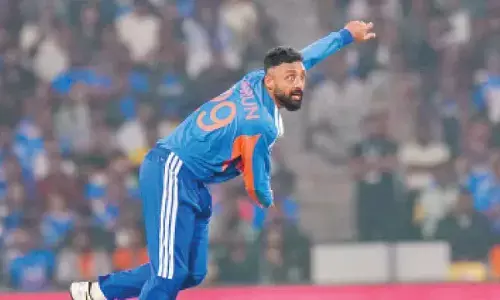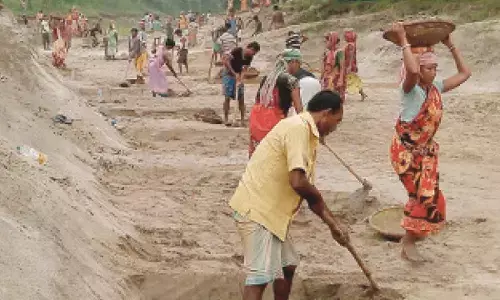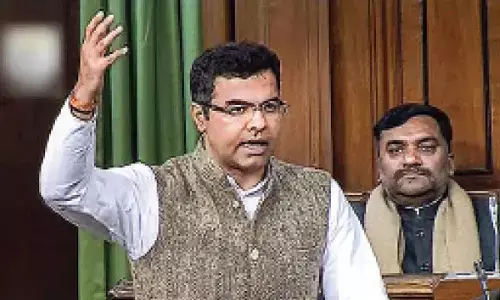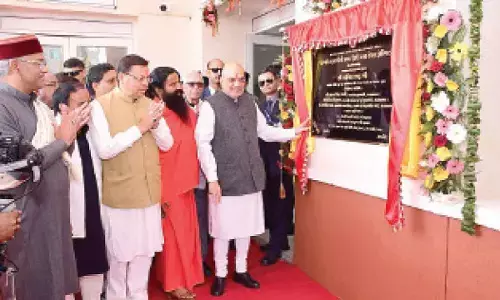Lawmakers have no time even as it rains woes
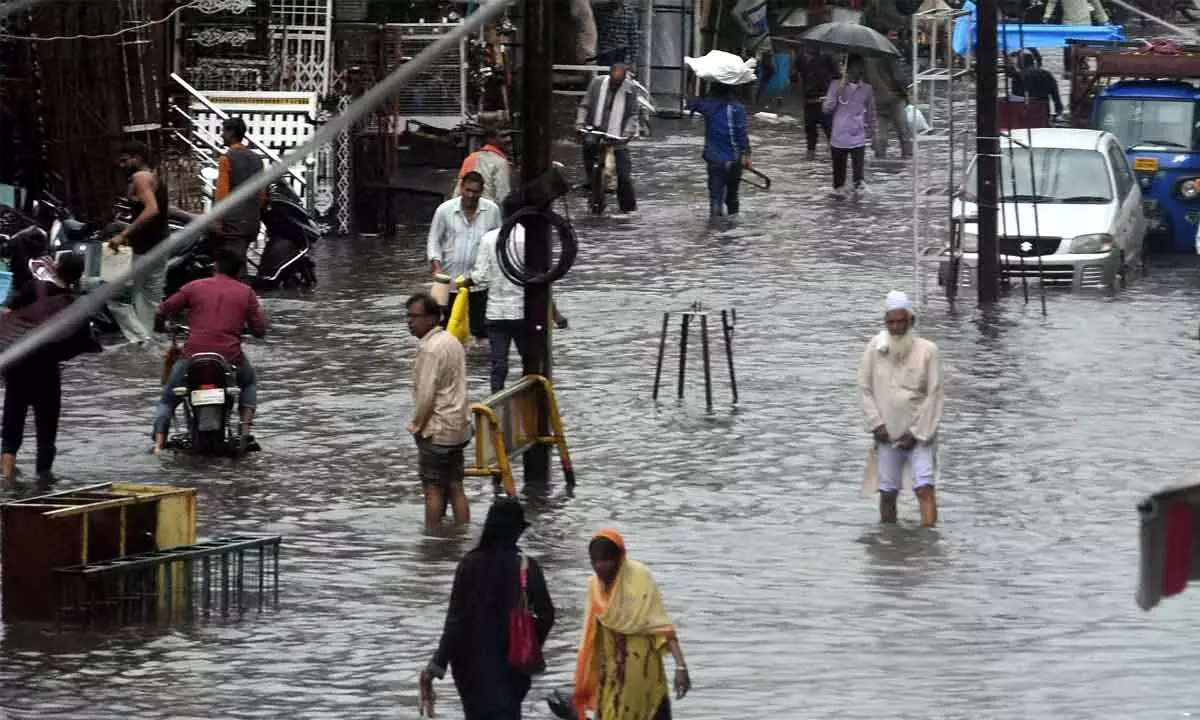
Cities and towns across India are facing a deluge with erratic monsoons and cyclones wreaking havoc. Millions of people across India are facing harrowing times under the impact of climate change. Delhi, Hyderabad, Chennai, Bangalore, Mumbai...the list is endless, and every major city and town is reeling under the water deluge.
Around 17.3 million people have been adversely affected on account of upheavals that took place after floods in 2020 and the figure is only rising every year since. It is not just the plains but also the hilly regions that are being affected. Simply put, the problem is arising out of copious rains in a short duration. This is leading to the failure of our urban infrastructure in tackling the situation. Usually, we used to notice Assam and Bihar as the worst affected. Millions of people get affected in these two States during the monsoon season. But, no more. It is not just these two, but several other States too are suffering due to poor or no planning.
Earlier only the flood-prone areas used to get affected due to rains. But with the changed rain patterns, we see this problem everywhere. Urban flooding in contrast to rural floods, which are caused by heavy rain over a flat or low-lying area, is caused not only by higher precipitation but also by unplanned urbanization.
Our country’s urban population is anticipated to reach 814 million by 2050. It is vital that the government focuses on city master plans and urban renewal initiatives as essential components to tackle the menace. With urban floods becoming a national problem, priority should be given to this issue. The original built-up area of our cities has increased exponentially in the last two to three decades. Disastrous planning and corruption at various levels, people are building homes and apartments on encroachments over lakes, wetlands and riverbeds.
The population density is only growing due to high land prices and the vertical growth of the cities. Every city has natural drains to take the water down to its logical end points. When such natural drains are lost, the need for creating artificial drainages occurs. Another factor lacking in our planning is that our sewage systems double up as drainages in our cities. That is the most senseless thing to happen. Our water supply and sewerage boards in most of the cities have turned into sewage supply and water boards over a period.
Hence, we are unable to tackle short-duration heavy rainfall resulting in higher water run-off. In addition, most of the cities go in for sudden and unplanned release of water from dams and lakes without giving enough time to the public to handle the flooding problem. The urban heat islands also trap the moisture in the air to result in intense rainfalls. The end result is not just chaos created by flooding, but damage to buildings, property, crops etc and infrastructure like power lines, transmission lines, communication and traffic on roads and railways.
Regular drinking water supply anyway is affected. The damage to the vehicles is also a huge dent in the finances of the people. Over and above this, it leads to epidemics. Have you ever seen any of the politicians speaking about these issues? Doesn’t this have the potential to be called a national issue? Take for example the monsoon session of this parliament. Are they discussing any of this? No. Their politics is paramount to them and nothing else is.













